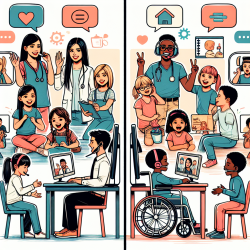In the field of speech-language pathology, it is essential to stay informed about historical and contemporary psychotherapeutic practices to create optimal outcomes for children. The research article "Suggestion, persuasion and work: Psychotherapies in communist Europe" by Sarah Marks provides a fascinating exploration of psychotherapeutic techniques in Communist Europe. These insights can significantly inform modern practices, particularly in online therapy services such as those provided by TinyEYE.
The study outlines three key therapeutic modalities that were prevalent in Communist countries: work therapy, suggestion, and rational therapy. Each of these approaches has striking similarities with modern behavioral and cognitive therapies, demonstrating the timeless nature of effective psychotherapeutic techniques.
Work Therapy
Work therapy was central to the Marxist-Leninist ideology, emphasizing the importance of labor for healthy human functioning. This approach can be particularly beneficial in therapeutic settings for children, as it aligns with the concept of structured activities and routines. Incorporating elements of work therapy into online sessions can help children develop a sense of responsibility and achievement.
Suggestion
Suggestion-based therapies, including hypnosis and autogenic training, were widely practiced in the Soviet sphere. These techniques can be adapted for use in modern speech-language pathology to enhance therapeutic outcomes. For instance, using positive reinforcement and motivational interviewing can help children build confidence and improve their communication skills.
Rational Therapy
Rational therapy, based on the principles of logical reasoning, shares similarities with modern cognitive-behavioral therapy (CBT). This approach can be particularly effective in helping children develop problem-solving skills and emotional regulation. By integrating rational therapy techniques into online therapy sessions, practitioners can provide children with tools to manage their thoughts and behaviors effectively.
Practical Implementation
To implement these historical psychotherapeutic techniques in modern practice, consider the following strategies:
- Structured Activities: Incorporate work therapy principles by designing structured activities that promote responsibility and engagement.
- Positive Reinforcement: Use suggestion techniques to provide positive reinforcement and build confidence in children.
- Cognitive Exercises: Integrate rational therapy techniques by including cognitive exercises that enhance problem-solving and emotional regulation.
Encouraging further research and continuous learning is crucial for practitioners. Exploring historical psychotherapeutic techniques can provide valuable insights and enhance modern therapeutic practices. By leveraging these techniques, we can create better outcomes for children and support their development more effectively.
To read the original research paper, please follow this link: Suggestion, persuasion and work: Psychotherapies in communist Europe.










